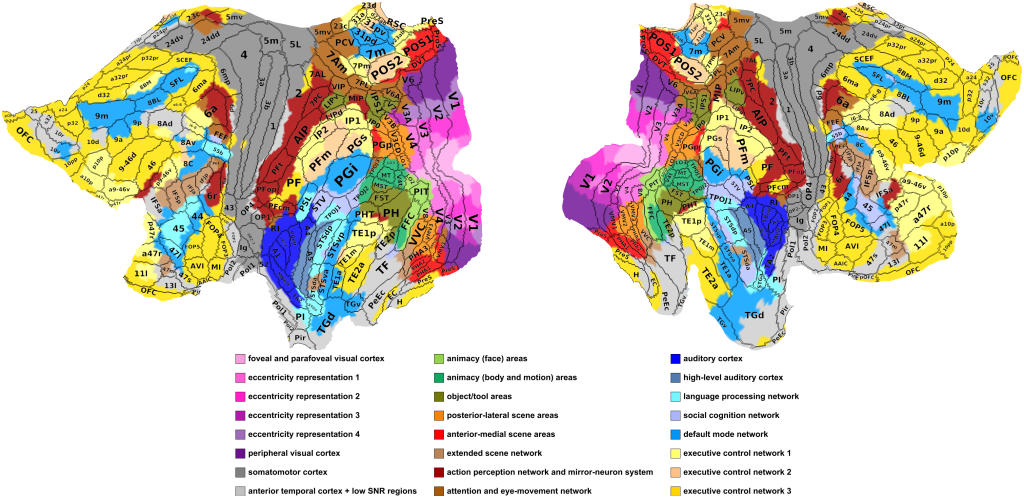FULL TITLE:
Functional architecture of cerebral cortex during naturalistic movie-watching
SPECIES:
Human
DESCRIPTION:
The scene file shows a functional parcellation map of 24 clusters on the flat patches of left and right hemispheres. The parcellation map was obtained using a clustering analysis on the time-courses of activity during the movie-watching scans. The clusters were named based on their anatomical location and topographic correspondence with previously described functional areas/networks in cortex. The Glasser’s multimodal parcellation was overlaid on the map for a qualitative comparison.
ABSTRACT:
Characterizing the functional organization of cerebral cortex is a fundamental step in understanding how different kinds of information are processed in the brain. Neuroimaging studies over the past decades have uncovered the function of many cortical areas in response to selected stimulus categories. However, it is still unclear how cortical areas are organized during naturalistic visual and auditory stimulation. Here we used high-resolution functional MRI data from 176 human subjects to map the macro-architecture of the entire cerebral cortex based on responses to a 60-minute audiovisual movie stimulus. A data-driven clustering approach revealed a map of 24 functional areas/networks, each related to a specific aspect of sensory or cognitive processing. The map included three distinct executive control (domain-general) networks which showed a strong push-pull interaction with domain-specific regions in visual, auditory, and language cortex. The cortical parcellation scheme presented here provides a comprehensive and unified map of functionally defined areas, which could replace a large set of functional localizer maps.
PUBLICATION:
BioRxiv
- DOI:
10.1101/2022.03.14.483878
- Reza Rajimehr
- Haoran Xu
- Asa Farahani
- Simon Kornblith
- John Duncan
- Robert Desimone
- Google Brain
- University of Cambridge
- University of Oxford
- Massachusetts Institute of Technology
- McGill University

